- Home
- Russell Blake
Rage of the Assassin: (Assassin Series #6) Page 7
Rage of the Assassin: (Assassin Series #6) Read online
Page 7
The front desk clerk was the same woman as on his prior trip, and he had a sense of déjà vu. He shrugged it off and continued to the counter, where he placed a small plastic vial of antidote and asked the clerk to run a spectrum analysis on it.
In his back pocket he had the results from the prior test, so he could quickly compare the two once the lab had performed its magic. His internal alarms had been clamoring ever since meeting with Rodriguez, and he’d taken special precautions this time around – the final shot that was supposed to fix everything was also the perfect opportunity for the ultimate betrayal.
He, more than most, knew the temptation there would be to renege on the deal. He was a student of human nature, and it would have actually surprised him if CISEN had behaved honorably.
The assassin took a seat in the waiting area while the woman carried his sample into the rear of the laboratory, where some faceless technician would analyze it and print out the chemical breakdown.
The woman returned and smiled. “Can I offer you anything while you wait? Water? A soda?”
“No, thanks. I’m good.”
The last visit she hadn’t offered anything. It was just a small detail. Probably inconsequential, he told himself, wanting badly to believe it even though his operational instincts argued that nothing was ever meaningless – everything contained information to a man whose job it was to correctly read the signs.
That was paranoid talk, he thought, one of the side effects of not receiving the shot in time. Like the tremors, it didn’t mean anything beyond what it signaled – that he was overdue and in trouble.
The test took forty-five minutes, and he didn’t bother looking at the results until he’d paid and gotten well clear of the building. He found a small taqueria that was teeming with a late afternoon crowd, took a seat in the back, and then carefully unfolded the old results and compared them to the new ones.
The antidote was genuine. The chemical composition matched.
El Rey glanced at his watch and moved to the back of the restaurant, where the bathrooms were located. He continued past the stalls to a wrought-iron rear gate and slipped through it into a reeking alley filled with refuse and noxious pools of suspect fluid. At the intersection he flagged down a taxi and gave the driver an address a few kilometers away, and then settled back into the seat to watch the city blur by.
The second lab was as modern as the first, and was one of several El Rey had located that could also run a spectrum analysis. He’d used the other laboratory too often, and he didn’t trust CISEN to be so incompetent that they couldn’t locate the place and jigger the results. But this one was virgin territory, and as such would serve as a reasonable confirmation stop before he gave himself the shot.
An hour later he emerged with a grim look of determination. His worst suspicions had been confirmed – what was in the second tiny vial he’d drawn was nothing like the antidote. The technician had warned him that injection would prove fatal, and he assured the young man that he understood that.
El Rey didn’t particularly care whether the tech made a call to the authorities once he was gone. The damage was done – he was exhibiting symptoms and had nothing to cure them.
Which he’d prepared for.
The problem was that he’d narrowed down the original source for the CIA’s neurotoxin, but not with complete certainty. He’d spent almost half a million dollars to ascertain that the agency contracted specialists with private firms to develop their potions, and he had a short list of seven of the likeliest suspects, all biochemists, all working for large military contractors who routinely did top-secret work for the government. Most were also linked with universities, where the scientists carried out research using generous federal grants to fund their activities, and he had no doubt that their cooperation with the clandestine apparatus was directly related to the government’s reciprocal largess.
Seven names, but too little time.
He needed to narrow the field. And there was only one person who could help him do so.
Rodriguez.
Who was probably celebrating with his quislings that El Rey was no more.
That would work in the assassin’s favor, of course. He’d made a career out of exploiting opportunities created when his adversaries underestimated him. This would be no different. If CISEN believed that he was dead, that meant they wouldn’t be watching for him.
Which was all he needed.
The rest would be easy.
Chapter 15
Carla finished dusting her dining room table and pursed her lips. The housekeeper never seemed to do as good a job as she did, and Carla typically went around her home after the woman’s weekly visit and tidied up obsessively. She didn’t mind, because with the number of things that typically weighed on her, the busywork helped her relax – something she especially needed now, with a major career decision to make as well as a turning point in her relationship.
Which stopped her. How had she gotten so far down that path? Without question, it was he who had made the first overture after their adventure together, their chemistry obvious from that brief time in each other’s company, but from there she had pursued it.
She sighed. Something about the man fascinated her, drew her like a moth to the flame, and she found herself unable to resist him.
That the sex was incredible went without saying.
But it was something more. He was damaged goods, but she didn’t think he was a sociopath, at least not in the sense of a serial killer who was unable to feel emotion. Even though he clearly was a repeat murderer, if she wanted to be accurate. But more in the way a sniper was – as part of a job, not because he delighted in snuffing out life.
She’d dared to ask him about it on their third night together, both of them naked and spent, and that was how he’d explained it. He was a craftsman, exactly like a special ops soldier who focused on those who needed killing. He felt no remorse over ending the lives of cartel thugs, and she didn’t argue it – his targets routinely had the blood of many on their hands, so in a way he was doing the world a favor.
While getting rich, she reminded herself.
Her thoughts were interrupted by a soft scrape behind her, and she whirled around to find him standing by the doorway, watching her.
“God. You scared me,” she said, clutching the dusting rag to her chest. She’d given him a key a month ago and had gotten used to his coming and going, but she hadn’t been expecting him, and his sudden presence threw her. “How did it go with CISEN?”
His expression remained neutral. “Not well. They tried to poison me,” he said in measured words, as though he was discussing a flat tire or an insect bite – an annoyance, nothing more.
Her face fell. “What? How?”
“They gave me a toxin that would have buried me within minutes.” He shrugged. “I half expected it.”
“But they can’t do that! You need to go to the president…”
He shook his head. “No. The time for that is past. And for all I know, he ordered it. It doesn’t matter. Now I’m racing the clock, so I have to move fast. I just wanted to tell you in person – I’m going to be gone for a while.”
“Where are you going?”
“The agent was created in the U.S. for the CIA. So that’s my first stop.”
“What are you planning to do? It’s not like you can just knock on Langley’s door and ask for an injection.”
“I know.” He told her about the scientists. “I’ve done my homework. Find the one who made the poison, and I have the person who can make the antidote.”
“How will you narrow it down?”
“I’ll persuade someone to point me in the right direction.”
She absorbed that, afraid to ask how he planned to do so. “You have the chemical composition, right? Why not just have someone else make it?”
“The analysis is at a relatively gross level. It’s fine for verification, but I worry that there’s something in the mix I don’t know a
bout that could kill me – some nuance or trace element that works in conjunction with the others in a critical way. I’m not a chemist, and I’m not going to leave it to chance.” He paused thoughtfully. “And I don’t have the time to have the antidote reverse engineered. I thought about it, believe me, but I need an actual sample, and until today I didn’t have one. The prior shots might have been a different composition than the one required for the final one – I just don’t know enough about how it works to give anyone instructions. Could be shot one is X amount of Y, shot two is Z amount of Y, and on and on.”
Carla approached him and put a hand on his chest. “How do you feel?”
“Fine, for now. But that will change, I know from experience. I just didn’t want you to worry when I wasn’t around. I’ll take care of this my own way.”
She nodded as her eyes held his. “I’ll come with you.”
He pulled away and shook his head. “Absolutely not. Speed’s key now, and with all due respect, I can’t afford anything that will slow me down.”
“You’re making a lot of assumptions. I’m a journalist – my credentials get me into a lot of places you might not have access to. What if one of those places holds the key to saving you?”
Her voice was calm, reasoned, and El Rey held off on an automatic rejection of the idea. He considered her point – women often were treated with less suspicion than men, and were discounted as being harmless by certain types of males.
She stepped closer. “I swear I won’t do anything to slow your progress. I’ll just hang in the background. But if you need me, I’ll be there; whereas if I’m still in Mexico City, I can’t do a lot for you.” Her gaze searched his face. “Please. I want to do this.” An idea occurred to her. “It might be a lot easier to get into the U.S. if you’re traveling as my cameraman.”
“I was thinking more about a tunnel or a boat.”
“If you have a Mexican passport, I can get you an expedited visa through my contact at the American Embassy. We can just fly directly to the U.S. tomorrow. Or even tonight, if he’s willing to process it immediately.”
“I have several.”
“Then give me one, I’ll make it happen, and we’ll hop on the first flight north once we have the visa.” She reached up and brushed a lock of hair from his brow. “Please. Let me help you.”
He thought about it for several moments, and then nodded. “I can have the passport in your hands in an hour.”
“I’ll make a call. Any ETA on when you want to leave?”
“I have another errand I need to run before we go.” He checked the time. “It shouldn’t take too long. Let me check and see if I can get a private jet for this evening.”
“I have a contact at the largest brokerage in DF. He can probably pull some strings. Say…eleven, assuming I can get the visa?”
A small smile tugged at the corners of his mouth. “I forgot how resourceful you are.”
“Yes, before I had you to rely on, I even had to brush my own teeth.”
His smile turned into a grin. “I’ll be back.”
She watched him leave and sighed heavily. “I hope you know what you’re doing,” she whispered. “Because I’ll be damned if I do.”
Chapter 16
A rusting pickup truck bounced down a muddy road on the outskirts of Tlalpan, a suburb of Mexico City, swerving to avoid the worst of the muddy puddles that had accumulated in the ruts. An early evening cloudburst had transformed the dusty track into a treacherous game of slip and slide for the intrepid drivers forced to negotiate it as they got off work. The area was industrial, although a scattering of shanties ringed the district, which had neither water nor sewage, and which bootlegged their electricity – a common practice in impoverished areas of Mexico.
A platinum Escalade passed the truck, splattering it with brown froth as the Cadillac blasted down the road toward one of the nearby single-story warehouses. A heavy iron gate slid open as the SUV neared, the driver having alerted the watchman of the vehicle’s arrival, and the big vehicle barely slowed as it swung into the high-walled compound and rolled toward the sprawling main building. It stopped in front of one of six roll-up loading dock doors, beside a pedestrian entrance flanked by two gunmen, smoking, their AK-47s hanging from shoulder slings.
Don Aranas stepped down from the Escalade and navigated carefully along the wet gravel, taking care to avoid soiling his beige linen slacks and Ferragamo shoes. The men stood as he neared and he nodded to them, pausing briefly to eye the five other vehicles parked alongside the building before twisting the door lever and entering the warehouse.
Claudio Trevi, the Don’s newly appointed second-in-command, emerged from one of the receiving area offices and approached. “He’s conscious now,” Trevi said, his voice gravelly.
“Good. Where do you have him?”
“Back by the forklifts. He just arrived two hours ago. There were several roadblocks on the way into Mexico City.”
“Looking for me, I assume?” Aranas asked with a smile.
“They’re always two steps behind, aren’t they?”
“It’s all just for show, anyway. They know they have no chance of catching me, but they have to appear to be doing something. Same as usual. Nothing changes.”
Aranas had most of the police and army officers that mattered in his pocket and would receive ample advance warning were there any chance an operation to apprehend him was getting anywhere. Which was unlikely – it was in nobody’s financial interests to incarcerate him again. Besides, the power vacuum created by the arrest or killing of several other top cartel bosses had done little to slow the rampant violence along the trafficking routes, demonstrating that a little evil you knew was preferable to even more aggressively violent new entrants scrambling for turf.
His media contacts had been making that observation for some time, lobbying subtly for his cartel to reassert its dominance, and positioning him in the minds of many Mexicans as a benign authority who kept the peace. Which was partially true: Aranas used violence judiciously, understanding that too much brought unwanted attention, whereas too soft a hand resulted in rivals becoming emboldened and making land grabs. His PR arm regularly uploaded videos to the Internet showing adversaries who’d been captured by Sinaloa, accusing them of kidnapping, extortion, and murdering innocents – all of which Aranas’s cartel avoided, not because they weren’t lucrative endeavors, but rather because the take from the trafficking business was so large it didn’t make sense to chase what he viewed as table scraps, and he didn’t need the attendant bad publicity.
That had resulted in Aranas assuming almost mythical proportions among the poor in his home state, as well as with the millions of disenfranchised peasants who lived in squalor and were routinely abused by any authority figure. One of the reasons crime statistics were so unreliable was that over ninety percent of crimes in Mexico went unreported, the victims fearing either reprisals from the police, who were often in on them, or inaction, which was the norm. A strong leader like Aranas with a reputation for not only having great wealth but being even-handed and reasonable was an appealing popular culture icon, and he played it up with the skill of a film star. Aranas was well known as a supporter of numerous charities and animal shelters, as well as the silent partner in a host of groups that lent small amounts to the poor so they could start small businesses, making him a national treasure to many.
But today he had serious business to attend to. His old second-in-command, Hector Agundez, had betrayed him, and Aranas understood that the rot might run deeper. Before his arrest, Aranas had suspected informants at a high level within his organization, and part of the benefit he saw being taken into custody was that everyone in his group was tempted and tested with the possibility of usurping his position.
Agundez had moved against him, aggressively and quickly. That explained much, such as how some of the competitive cartels Aranas had held at bay for years had been able to take territory from him in his final years at the helm. Th
e answer was obvious: they had help.
“Chuco and Paco are here?” Aranas asked.
“Of course. As you ordered. They’re keeping an eye on our boy.”
Aranas exhaled and withdrew a Cuban cigar from his breast pocket. He snipped the end off and Trevi lit it for him, a common ritual for the pair. “Let’s get this over with. Lead me to him.”
“This way.”
The two men walked past stacks of paint cans and construction materials to the rear of the cavernous space, and Trevi paused in front of a steel door. “In there.”
Aranas nodded. There was a way he preferred to handle interrogations, and the fewer witnesses, the better. Trevi opened the door and Aranas leaned close to him. “Have Chuco and Paco stand by. I’ll call for them.”
“Will do.”
Aranas stepped into the darkened room, which was thirty feet square. Dim light filtered through high windows caked with grime, and Aranas strolled over to where Agundez hung, his ankles and wrists bound and his arms above his head, suspended from a chain. Agundez sniffed at the air as Aranas walked toward him and nodded ruefully.
“I figured it had to be your doing,” Agundez said, his voice thick.
“You more than earned it when you stabbed me in the back.”
“You were in jail. Finished.”
Aranas grunted. “The rumors of my demise were somewhat exaggerated. Which if you had half a brain, you would have known.”
“I did what I had to do. You would have done the same.”
“Perhaps. But that’s not the case. Which leaves me with a problem: your fledgling cartel is a thorn in my side.”
“Your distribution is in shambles. You need hard money to pay for new shipments – your credit’s no longer good with the suppliers. Too much uncertainty, too many new groups challenging you. You need me. I can help, and you know it. I have relationships with everyone. I can make this right.”

 Night of the Assassin
Night of the Assassin Jet
Jet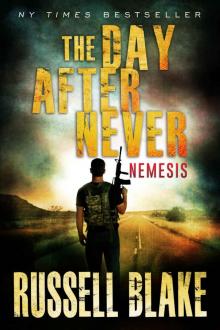 The Day After Never - Nemesis (Post-Apocalyptic Dystopian Thriller - Book 9)
The Day After Never - Nemesis (Post-Apocalyptic Dystopian Thriller - Book 9)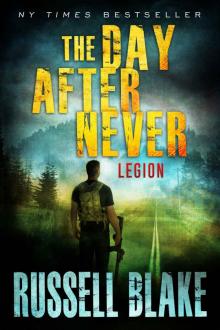 The Day After Never - Legion (Post-Apocalyptic Dystopian Thriller - Book 8)
The Day After Never - Legion (Post-Apocalyptic Dystopian Thriller - Book 8)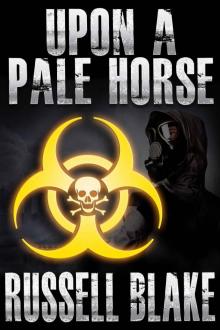 Upon A Pale Horse (Bio-Thriller)
Upon A Pale Horse (Bio-Thriller)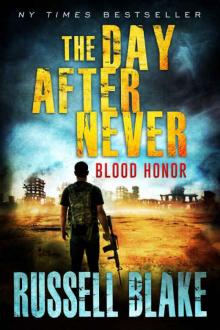 The Day After Never (Book 1): Blood Honor
The Day After Never (Book 1): Blood Honor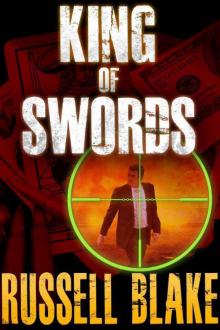 King of Swords a-1
King of Swords a-1 The Day After Never Bundle (First 4 novels)
The Day After Never Bundle (First 4 novels)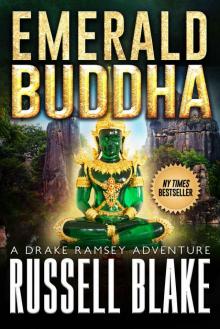 Emerald Buddha (Drake Ramsey Book 2)
Emerald Buddha (Drake Ramsey Book 2) BLACK to Reality
BLACK to Reality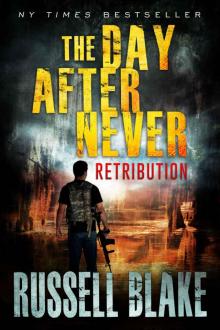 The Day After Never - Retribution (Post-Apocalyptic Dystopian Thriller - Book 4)
The Day After Never - Retribution (Post-Apocalyptic Dystopian Thriller - Book 4) Ramsey's Gold (Drake Ramsey Book 1)
Ramsey's Gold (Drake Ramsey Book 1)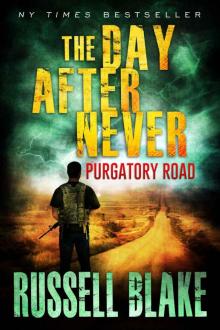 The Day After Never (Book 2): Purgatory Road
The Day After Never (Book 2): Purgatory Road JET - Ops Files
JET - Ops Files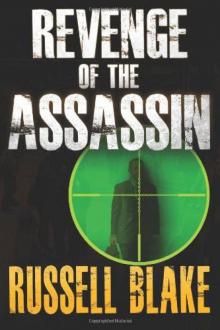 Revenge of the Assassin a-2
Revenge of the Assassin a-2 Requiem for the Assassin - 06
Requiem for the Assassin - 06 The Geronimo Breach
The Geronimo Breach Sahara
Sahara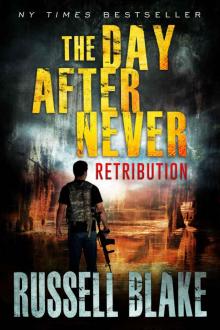 The Day After Never (Book 4): Retribution
The Day After Never (Book 4): Retribution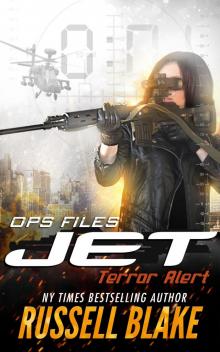 Ops Files II--Terror Alert
Ops Files II--Terror Alert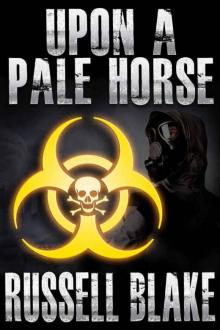 Upon A Pale Horse
Upon A Pale Horse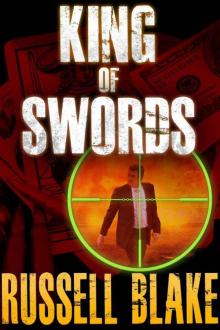 King of Swords (Assassin series #1)
King of Swords (Assassin series #1) A Girl Apart
A Girl Apart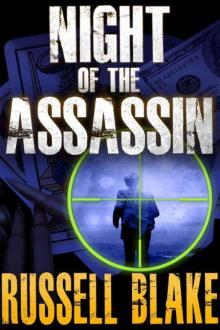 Night of the Assassin: Assassin Series Prequel
Night of the Assassin: Assassin Series Prequel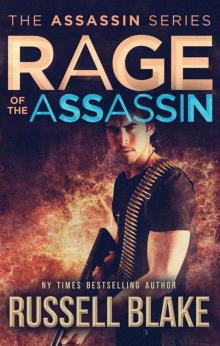 Rage Of The Assassin
Rage Of The Assassin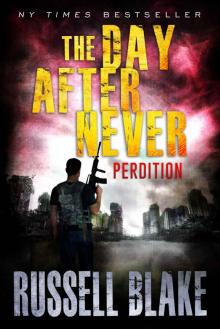 The Day After Never - Perdition (Book 6)
The Day After Never - Perdition (Book 6)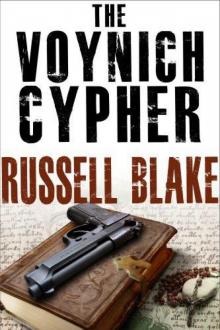 The Voynich Cypher
The Voynich Cypher JET, no. 3
JET, no. 3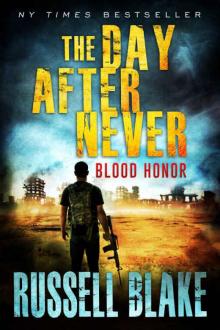 The Day After Never - Blood Honor (Post-Apocalyptic Dystopian Thriller)
The Day After Never - Blood Honor (Post-Apocalyptic Dystopian Thriller) 9 More Killer Thrillers
9 More Killer Thrillers The Goddess Legacy
The Goddess Legacy Fatal Exchange
Fatal Exchange Fatal Exchange (Fatal Series Book 1)
Fatal Exchange (Fatal Series Book 1) JET - Forsaken
JET - Forsaken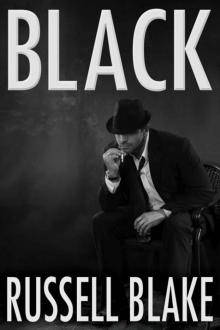 Black
Black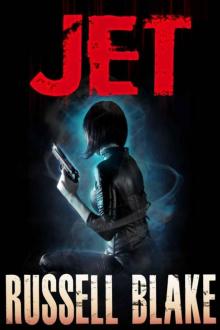 Jet j-1
Jet j-1 Betrayal j-2
Betrayal j-2 Jet 04: Reckoning
Jet 04: Reckoning Jet 03: Vengeance
Jet 03: Vengeance Fatal Deception
Fatal Deception A Girl Betrayed (A Leah Mason suspense thriller Book 2)
A Girl Betrayed (A Leah Mason suspense thriller Book 2)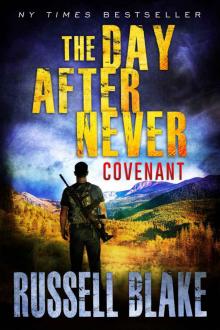 The Day After Never - Covenant (Post-Apocalyptic Dystopian Thriller - Book 3)
The Day After Never - Covenant (Post-Apocalyptic Dystopian Thriller - Book 3) JET II - Betrayal (JET #2)
JET II - Betrayal (JET #2)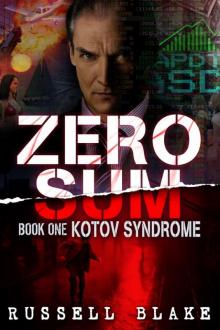 Zero Sum, Book One, Kotov Syndrome
Zero Sum, Book One, Kotov Syndrome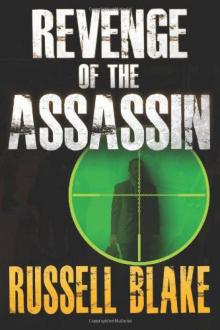 Revenge of the Assassin
Revenge of the Assassin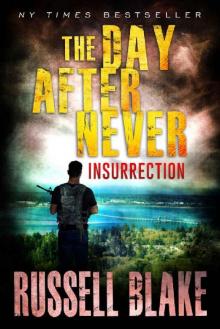 The Day After Never - Insurrection (Book 5)
The Day After Never - Insurrection (Book 5)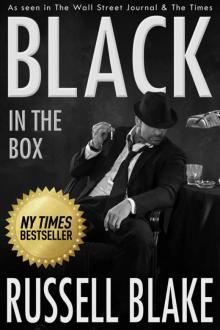 BLACK in the Box
BLACK in the Box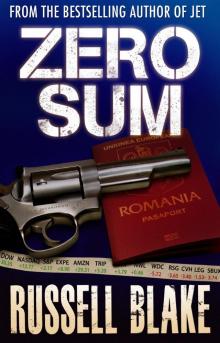 Zero Sum
Zero Sum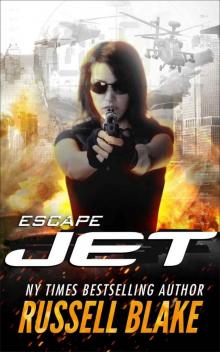 JET - Escape: (Volume 9)
JET - Escape: (Volume 9) The Manuscript
The Manuscript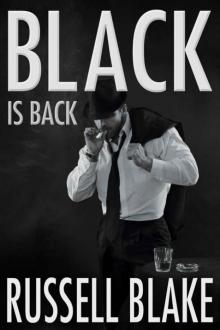 BLACK Is Back
BLACK Is Back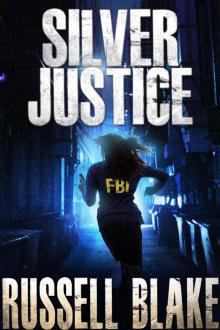 Silver Justice
Silver Justice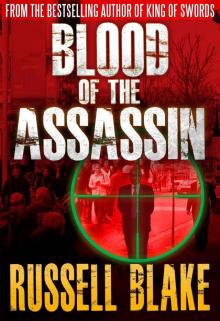 Blood of the Assassin
Blood of the Assassin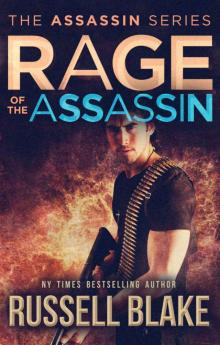 Rage of the Assassin: (Assassin Series #6)
Rage of the Assassin: (Assassin Series #6)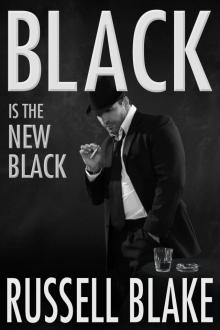 BLACK Is the New Black
BLACK Is the New Black